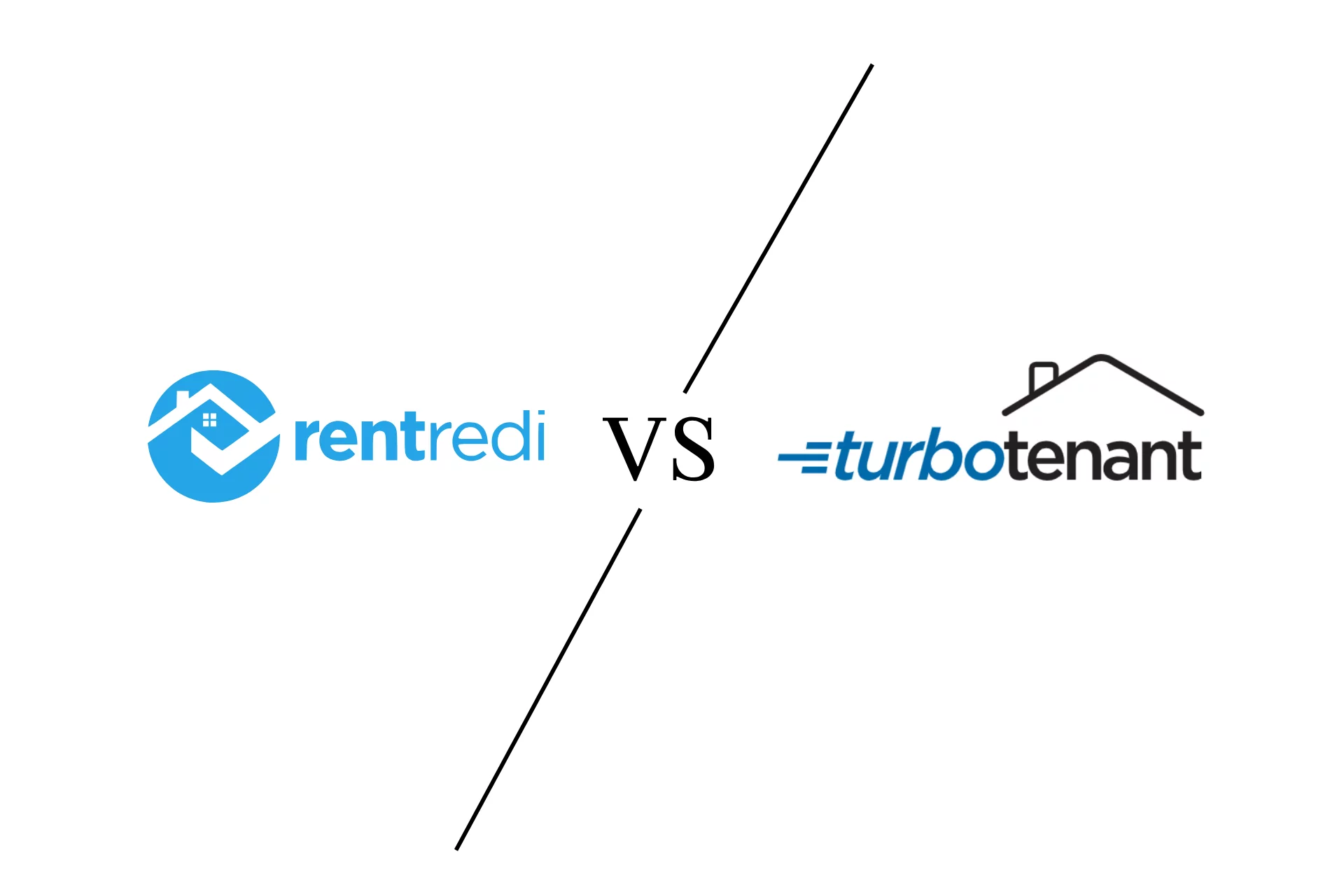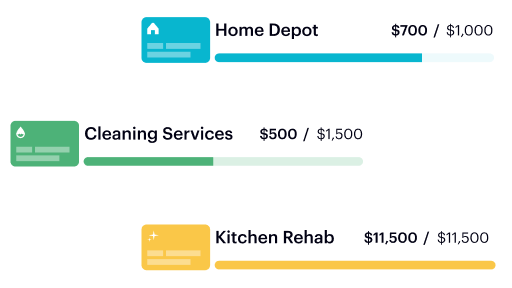As rental property owners, you understand the importance of tenant satisfaction and property maintenance. 80% of tenants prefer online rent payments, according to recent research. This trend is not just an echo of the growing digitalization of services but an indication that online rental platforms provide substantial benefits.
In this scenario, landlords using such services see an increase in on-time payments, leading to more predictable cash flow and less time chasing late payments.
The right platform can turn rent collection from a time-consuming chore into a streamlined, automatic process. Yet, deciding on the right tool for your property management can be challenging.
Two standout platforms in this space, RentRedi, and TurboTenant, promise to streamline operations and boost productivity, transforming property management. Both platforms offer distinctive features and benefits, making life easier for landlords and property managers.
However, as we dig deeper into these platforms, a third contender, Baselane, might surprise you with its compelling offerings.
Let’s explore your options.
RentRedi Overview
RentRedi is a property management software designed primarily for landlords managing multiple properties.
Tailored for landlords with a high volume of cash-based tenants, RentRedi stands as a comprehensive property management software. Unlike many others in the market, RentRedi facilitates cash payments for rent at thousands of retail locations, besides traditional online rent collection. This makes RentRedi an efficient tool for landlords navigating cash payments.
Despite lacking a free plan, RentRedi offers flexible pricing options, ranging from $9 to $19.95 monthly. While tenants incur fees—2.9% + $0.30 for credit/debit cards and $1 for ACH transfers—cash deposits are pretty economical, costing merely $1 per transaction. Though ideal for cash-preferring landlords, tenants using online rent payment options should be aware of the associated charges.
Features of RentRedi
- Online Rent Collection: With RentRedi, landlords can collect rent online, making the process efficient and hassle-free. This not only provides convenience to tenants but also ensures timely payments.
- Unlimited Payment Accounts: RentRedi allows landlords to link unlimited payment accounts. This makes it easy to manage finances for multiple properties or rental units.
- Mobile App: RentRedi’s mobile app for landlords and tenants makes it easy to manage properties on the go. Tenants can make payments, send maintenance requests, and communicate with landlords, while landlords can track payments, respond to requests, and update property information.
Pros of RentRedi
- RentRedi offers an all-in-one solution, including rent collection, tenant screening, and maintenance requests.
- Its mobile application allows landlords and tenants to manage their properties and rental payments on the go.
- For landlords, it has add-on rental property accounting software.
Cons of RentRedi
- The platform lacks a free plan, potentially turning away landlords who manage a smaller number of properties or those just starting.
- It can take a while (4-5 days) for deposits to process.
- The user interface might seem outdated, and the experience could confuse some users.
Pricing and Plans for RentRedi
The pricing varies from $9 to $19.95 per month, depending on the plan. While this may seem affordable, it’s important to note that RentRedi does not offer a free option, which might deter some landlords.
TurboTenant Overview
TurboTenant is another property management software that offers additional features like expense tracking, rent reporting, and maintenance requests. Unlike RentRedi, TurboTenant property software has a free basic plan and offers state-specific lease agreements, e-signatures, and lease addendums as add-ons.
Features of TurboTenant
- Expense Tracking: TurboTenant offers expense tracking features that make it easy for landlords to monitor their property-related expenses.
- Rent Reporting: TurboTenant allows landlords to report rent payments to credit bureaus. This can be a motivating factor for tenants to make their payments on time.
- Maintenance Requests: With TurboTenant, tenants can submit maintenance requests online. This streamlines the process and allows for faster resolution.
Pros of TurboTenant
- TurboTenant provides a free basic plan which is attractive for landlords who are just starting or those with fewer properties.
- The platform offers state-specific lease agreements, making it easy for landlords to comply with local laws.
Cons of TurboTenant
- TurboTenant charges tenants a hefty $55 for application fees, which could potentially discourage prospective tenants.
- Additional features like faster payouts and multiple bank accounts come at an additional cost.
- Outdated user experience and interface
Pricing and Plans for TurboTenant
TurboTenant offers a free plan for landlords, making it an attractive choice for those managing a small number of properties. For landlords requiring additional features such as faster payouts or more than one bank account, TurboTenant offers a premium plan at $8.25 monthly.
Baselane vs TurboTenant vs RentRedi
Unlike RentRedi and TurboTenant, Baselane emerges as an all-in-one banking and financial platform purpose-built for landlords. Baselane offers free online rent collection and an intuitive user interface that’s easy to navigate. One of its standout features is Baselane banking, offering a 4.25% APY, up to 5% cash back, virtual accounts, virtual cards, automated bookkeeping, and much more.
Unlike RentRedi, with Baselane’s free platform, landlords collect rent payments efficiently through ACH at no extra charge to tenants. With a 2.99% debit and credit card payment fee, landlords can offer quick payouts within 2-5 days and an integrated bookkeeping system, making it an excellent landlord accounting tool.
Moreover, with online rent collection, Baselane simplifies the process of collecting and tracking rent payments, allowing landlords to focus on other aspects of real estate business.
The primary difference between Baselane and TurboTenant is the added financial benefits Baselane offers. Baselane’s banking provides high-yield checking interest and cash back, which TurboTenant doesn’t offer.
Moreover, Baselane streamlines rent collection and provides an efficient security deposit account for landlords, making it effortless to collect and manage security deposits and recurring fees.
Furthermore, Baselane’s landlord banking service allows landlords to partition their accounts by unit, providing a level of financial organization and ease that neither RentRedi nor TurboTenant offers.
Baselane now offers a free lease creation and e-sign option as well.
Final Thoughts
Finding the best rent collection tool can make property management smooth and less stressful, giving you more time to grow your rental business.
While RentRedi and TurboTenant each have benefits, Baselane stands out for its financial features like landlord banking and high-interest checking. Its free platform, user-friendly design, and lower tenant fees make it a top choice. Plus, it simplifies tasks by offering multiple services in one place.
So, if you’re a landlord aiming for efficiency, Baselane could be your solution. Remember, the right tool can make you a more effective property manager, so choose wisely.
Sign up for a free Baselane account to start collecting rent, managing your finances, and automating bookkeeping.
Remember, the right tool will help you become the most effective and efficient property manager you can be. Choose wisely!






